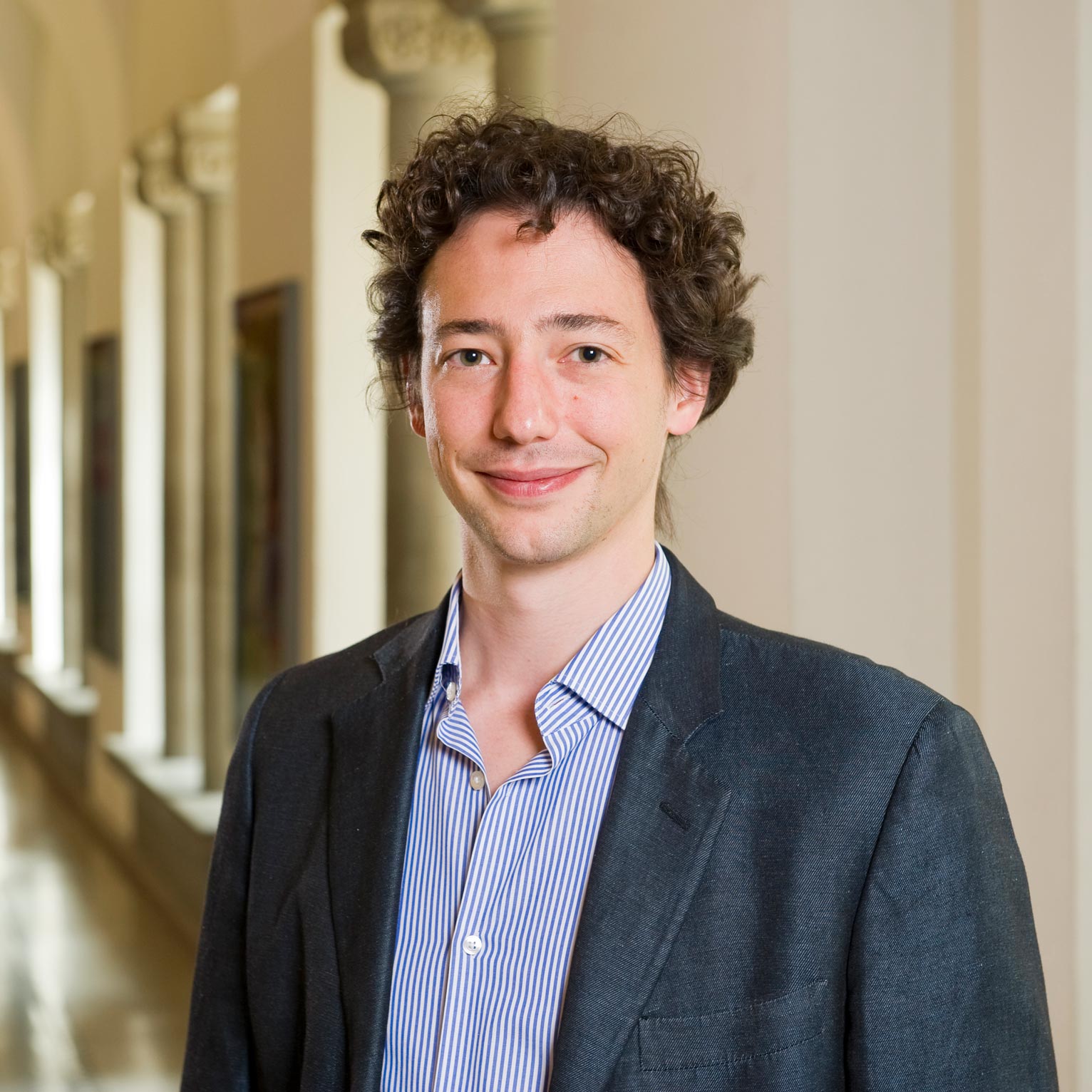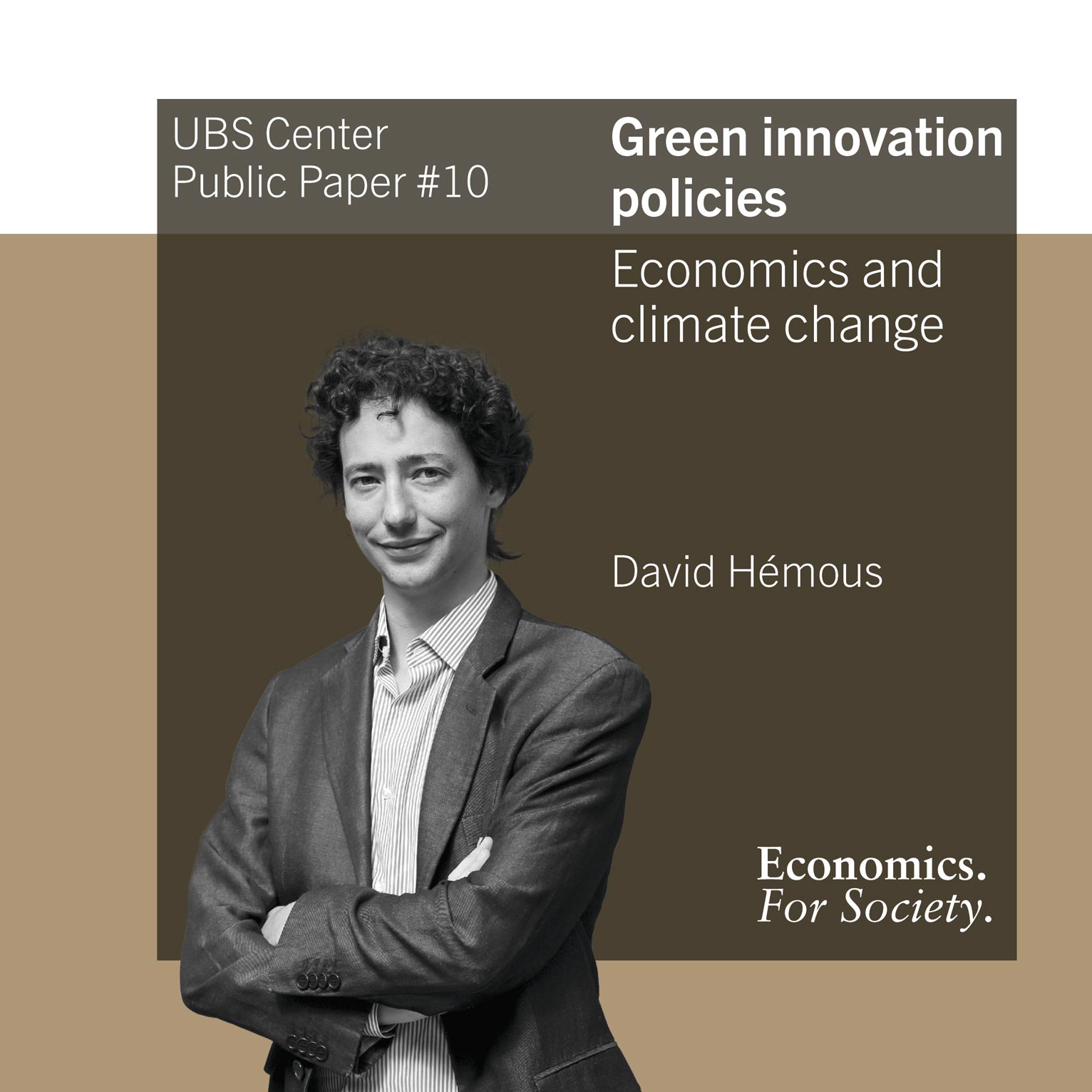Green innovation policies
Livestream
Economics of Global Challenges
Climate change already has a negative impact on the environment and our societies, and this impact will get worse over the course of this century. How much worse? This will depend on our ability to reduce greenhouse gas emissions. Achieving the necessary reduction in emissions, while maintaining (and improving) worldwide living standards can only be achieved through innovation. How should global climate policy be designed to leverage this innovation response?
David Hémous reviewed recent economic research on the role of innovation in the design of climate policy and took questions in his webinar on March 24 at 17:00 CET. Your host was Nir Jaimovich (University of Zurich).
This was a public event with free access via livestream on our website.
This session was presented in association with the Centre for Economic Policy Research (CEPR).
Climate change already has a negative impact on the environment and our societies, and this impact will get worse over the course of this century. How much worse? This will depend on our ability to reduce greenhouse gas emissions. Achieving the necessary reduction in emissions, while maintaining (and improving) worldwide living standards can only be achieved through innovation. How should global climate policy be designed to leverage this innovation response?
David Hémous reviewed recent economic research on the role of innovation in the design of climate policy and took questions in his webinar on March 24 at 17:00 CET. Your host was Nir Jaimovich (University of Zurich).

Green innovation policies
Our ability to reduce greenhouse gas emissions will determine how fast we can stop global warming. In his Public Paper, UBS Foundation Professor David Hémous explains that achieving the necessary reduction in emissions – while maintaining (and improving) worldwide living standards – can only be accomplished through innovation. Innovation has the potential to combine the necessary decline in greenhouse gas emissions with sustained economic growth; and it responds largely and rapidly to price signals. However, innovation is not a silver bullet. It is conducted by scientists and firms, it reacts to market and policy incentives, and needs therefore be regulated by governments. Hémous reviews recent economic research on the role of innovation in the design of climate policy, he evaluates the effectiveness of current technological trends, and introduces a new economic climate policy innovation framework.
Download your free copy here.
Our ability to reduce greenhouse gas emissions will determine how fast we can stop global warming. In his Public Paper, UBS Foundation Professor David Hémous explains that achieving the necessary reduction in emissions – while maintaining (and improving) worldwide living standards – can only be accomplished through innovation. Innovation has the potential to combine the necessary decline in greenhouse gas emissions with sustained economic growth; and it responds largely and rapidly to price signals. However, innovation is not a silver bullet. It is conducted by scientists and firms, it reacts to market and policy incentives, and needs therefore be regulated by governments. Hémous reviews recent economic research on the role of innovation in the design of climate policy, he evaluates the effectiveness of current technological trends, and introduces a new economic climate policy innovation framework.
Download your free copy here.

Related videos
Speakers
David Hémous received his PhD from Harvard University in 2012. He is a macroeconomist working on economic growth, climate change and inequality. His work highlights that innovation responds to economic incentives and that public policies should be designed taking this dependence into account. In particular, he has shown in the context of climate change policy that innovations in the car industry respond to gas prices and that global and regional climate policies should support clean innovation to efficiently reduce CO2 emissions. His work on technological change and income distribution shows that higher labor costs lead to more automation, and that the recent increase in labor income inequality and in the capital share can be explained by a secular increase in automation. He has also shown that innovation affects top income shares. He was awarded an ERC Starting Grant on 'Automation and Income Distribution – a Quantitative Assessment' and he received the 2022 'European Award for Researchers in Environmental Economics under the Age of Forty'.
Nir Jaimovich is a macroeconomist who studies business cycles and the dynamics of the labor market. He is a research fellow at the Centre for Economic Policy Research (CEPR) and an associate editor of the Journal of Monetary Economics and the Journal of Economic Theory. Before joining the University of Zürich, Professor Jaimovich was on the faculty at the Marshall School of Business at USC, Duke University, Stanford University, and the University of California, San Diego. He was also a Research Associate in the National Bureau of Economic Research (NBER) Economic Fluctuations and Growth program.
David Hémous received his PhD from Harvard University in 2012. He is a macroeconomist working on economic growth, climate change and inequality. His work highlights that innovation responds to economic incentives and that public policies should be designed taking this dependence into account. In particular, he has shown in the context of climate change policy that innovations in the car industry respond to gas prices and that global and regional climate policies should support clean innovation to efficiently reduce CO2 emissions. His work on technological change and income distribution shows that higher labor costs lead to more automation, and that the recent increase in labor income inequality and in the capital share can be explained by a secular increase in automation. He has also shown that innovation affects top income shares. He was awarded an ERC Starting Grant on 'Automation and Income Distribution – a Quantitative Assessment' and he received the 2022 'European Award for Researchers in Environmental Economics under the Age of Forty'.
Nir Jaimovich is a macroeconomist who studies business cycles and the dynamics of the labor market. He is a research fellow at the Centre for Economic Policy Research (CEPR) and an associate editor of the Journal of Monetary Economics and the Journal of Economic Theory. Before joining the University of Zürich, Professor Jaimovich was on the faculty at the Marshall School of Business at USC, Duke University, Stanford University, and the University of California, San Diego. He was also a Research Associate in the National Bureau of Economic Research (NBER) Economic Fluctuations and Growth program.